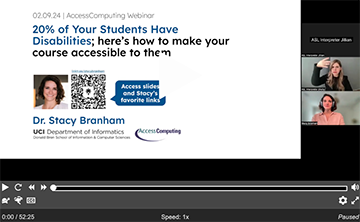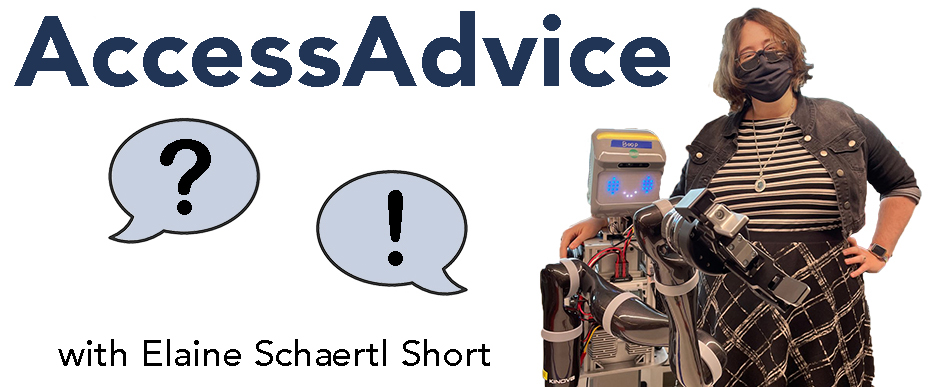New Book, Teach Accessible Computing, Available for Free

We are pleased to announce the inaugural edition of Teaching Accessible Computing, a community-sourced book aimed at assisting educators with integrating accessibility topics into their courses edited by Alannah Oleson, Amy J. Ko, and Richard Ladner.
Without learning about accessibility, the next generation of accessibility professionals can’t design accessible technology. And, yet, we hear from faculty that they need better resources to teach about accessibility in their courses. Teaching Accessible Computing is designed to fill this gap. It includes basic accessibility information and strategies for integrating accessibility into computer science courses.
Because the book is a living document, we invite you to sign up to be alerted when content is updated or share suggestions for improvement.
This book is thanks to the hard work of many outstanding accessible computing researchers and educators, including Jeff Bigham, William Bares, Mine Dogucum, Yasmine Elglaly, Paula Gabbert, Shaun Kane, Richard Ladner, Jennifer Mankoff, Catie Baker, Kristen Shinohara, Elena Kalodner-Martin, Kelly Mack, Lauren Milne, Vivian Genaro Motti, Joslenne Peña, Thomas Pickering, Annie Ross, JooYoung Seo, Elaine Short, and Annuska Zolyomi.
A special thanks also to our amazing lead editor, Alannah Oleson, whose dedicated efforts were instrumental in the compilation of this book throughout the past year. Your ongoing support and contributions were indispensable to the realization of this project.

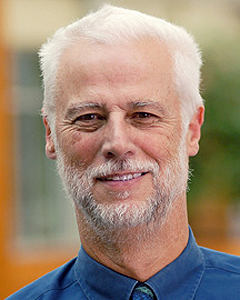 The winter and spring of 2024 has been a time of transition for AccessComputing, as long-time PI Richard Ladner stepped down. Richard has been a PI for AccessComputing since it's inception in 2006. That’s the year that the National Science Foundation established the Broadening Participation in Computing program and the year that Richard partnered with the DO-IT Center to create AccessComputing, which has now successfully won five (thus far) NSF grants to establish and continue AccessComputing.
The winter and spring of 2024 has been a time of transition for AccessComputing, as long-time PI Richard Ladner stepped down. Richard has been a PI for AccessComputing since it's inception in 2006. That’s the year that the National Science Foundation established the Broadening Participation in Computing program and the year that Richard partnered with the DO-IT Center to create AccessComputing, which has now successfully won five (thus far) NSF grants to establish and continue AccessComputing.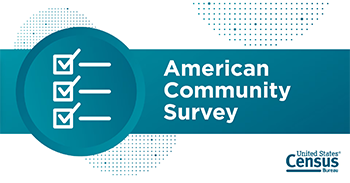 Every year the U.S. Census Bureau does the American Community Survey (ACS)--a survey that is much more detailed than the regular census but only samples a large subset of the population, rather than the entire population. Until 2008, the disability question focused on blindness, deafness, mobility, and other conditions. The change in 2008 was to move to a functional definition of disability by asking a yes/no question about functional limitations in any one of six activities: hearing, seeing, moving, self-care, cognitive, and independent living. Disability was determined by whether the activity was “difficult or very difficult” to do.
Every year the U.S. Census Bureau does the American Community Survey (ACS)--a survey that is much more detailed than the regular census but only samples a large subset of the population, rather than the entire population. Until 2008, the disability question focused on blindness, deafness, mobility, and other conditions. The change in 2008 was to move to a functional definition of disability by asking a yes/no question about functional limitations in any one of six activities: hearing, seeing, moving, self-care, cognitive, and independent living. Disability was determined by whether the activity was “difficult or very difficult” to do.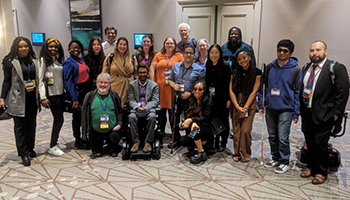 For the first time, the two CRA-WP Grad Cohort career development workshops were held simultaneously in Minneapolis, Minnesota from April 11 to 13, 2024. The first and the oldest is the CRA-WP Grad Cohort for Women that began in 2004 while the second is the CRA-WP Grad Cohort for Inclusion, Diversity, Equity, Accessibility, and Leadership Skills (IDEALS) that began in 2018. AccessComputing is a bronze sponsor for both events. A total of 238 graduate students and 41 mentors attended both workshops combined. Some of the sessions were plenary with both groups combined and some were separate and held simultaneously. A total of 34 graduate students in the combined workshops identified as disabled, some of them AccessComputing Team members. Among the mentors were the new AccessComputing PI, Maya Cakmak, former PI Richard Ladner, Co-PI Raja Kushalnagar, partner from Duke, Susan Rodger, and former partner from Colorado, Shaun Kane. Ather Sharif, who is an AccessComputing student who will soon graduate with a PhD from the University of Washington, served as a mentor. He has attended all the Grad Cohort for IDEALS since 2018, first as a graduate student, eventually moving to being a fantastic mentor.
For the first time, the two CRA-WP Grad Cohort career development workshops were held simultaneously in Minneapolis, Minnesota from April 11 to 13, 2024. The first and the oldest is the CRA-WP Grad Cohort for Women that began in 2004 while the second is the CRA-WP Grad Cohort for Inclusion, Diversity, Equity, Accessibility, and Leadership Skills (IDEALS) that began in 2018. AccessComputing is a bronze sponsor for both events. A total of 238 graduate students and 41 mentors attended both workshops combined. Some of the sessions were plenary with both groups combined and some were separate and held simultaneously. A total of 34 graduate students in the combined workshops identified as disabled, some of them AccessComputing Team members. Among the mentors were the new AccessComputing PI, Maya Cakmak, former PI Richard Ladner, Co-PI Raja Kushalnagar, partner from Duke, Susan Rodger, and former partner from Colorado, Shaun Kane. Ather Sharif, who is an AccessComputing student who will soon graduate with a PhD from the University of Washington, served as a mentor. He has attended all the Grad Cohort for IDEALS since 2018, first as a graduate student, eventually moving to being a fantastic mentor.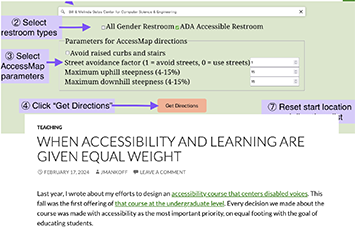 AccessComputing partner
AccessComputing partner 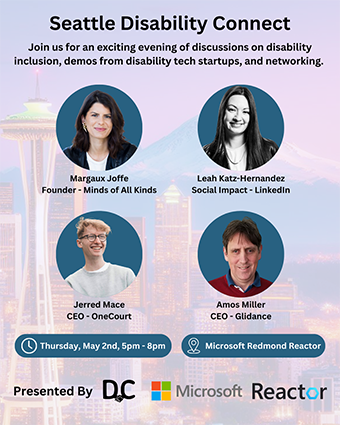
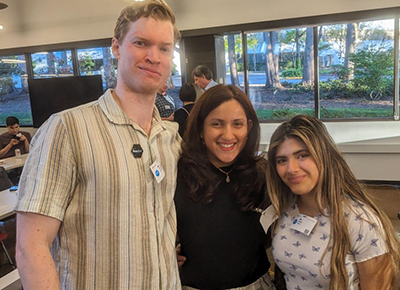 After the presentations ended, we had open time for networking. I met up with Meena Das and Naba Rizvi, both AccessComputing Team members, to talk about what they have been doing and their plans for the future. Meena is now a Program Manager at Microsoft and Naba is finishing up her dissertation at the University of California, San Diego. It was great to see all the former AccessComputing students.
After the presentations ended, we had open time for networking. I met up with Meena Das and Naba Rizvi, both AccessComputing Team members, to talk about what they have been doing and their plans for the future. Meena is now a Program Manager at Microsoft and Naba is finishing up her dissertation at the University of California, San Diego. It was great to see all the former AccessComputing students.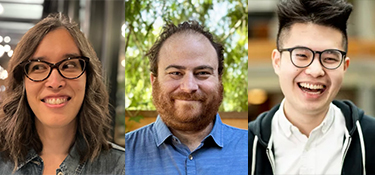 Professors Amy Ko, Ben Shapiro, and Kevin Lin from the University of Washington have spearheaded the launch of the UW Center for Learning, Computing, and Imagination (LCI). The unique initiative aims to envision creative learning with and about computing technologies, through research, community building, and the creation of pathways for computing educators in K-12 and higher education. This collaborative platform, pronounced 'lacy,' is a response to the alarming fact that nearly half of the public or state-tribal schools in the United States do not offer a single computer science class. The shortage of computer science teachers and training programs further exacerbates this issue, especially when many school districts are grappling with funding challenges.
Professors Amy Ko, Ben Shapiro, and Kevin Lin from the University of Washington have spearheaded the launch of the UW Center for Learning, Computing, and Imagination (LCI). The unique initiative aims to envision creative learning with and about computing technologies, through research, community building, and the creation of pathways for computing educators in K-12 and higher education. This collaborative platform, pronounced 'lacy,' is a response to the alarming fact that nearly half of the public or state-tribal schools in the United States do not offer a single computer science class. The shortage of computer science teachers and training programs further exacerbates this issue, especially when many school districts are grappling with funding challenges.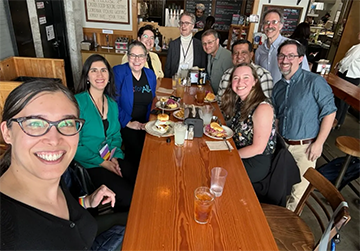
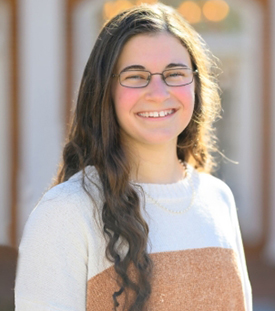 Katie Yurechko, AccessComputing Team Member, is a distinguished scholar at Washington and Lee University, where she is pursuing a BS in computer Science and philosophy alongside a minor in poverty and human capability studies. Known for her groundbreaking research, Yurechko delved into the phenomenon of "algospeak" during her internship at Carnegie Mellon University’s Media, Interaction and Technology Lab, examining its implications for content moderation and marginalized communities on TikTok. Her work led to a co-authored publication in Sage Journals’ Social Media + Society Journal and garnered attention from outlets like Vox and MSN. Engaging in initiatives beyond the academic realm, Yurechko has participated in Google’s Computer Science Research Mentorship Program and contributed to the People + AI Research group, while also serving as a computer science teaching assistant at Washington and Lee.
Katie Yurechko, AccessComputing Team Member, is a distinguished scholar at Washington and Lee University, where she is pursuing a BS in computer Science and philosophy alongside a minor in poverty and human capability studies. Known for her groundbreaking research, Yurechko delved into the phenomenon of "algospeak" during her internship at Carnegie Mellon University’s Media, Interaction and Technology Lab, examining its implications for content moderation and marginalized communities on TikTok. Her work led to a co-authored publication in Sage Journals’ Social Media + Society Journal and garnered attention from outlets like Vox and MSN. Engaging in initiatives beyond the academic realm, Yurechko has participated in Google’s Computer Science Research Mentorship Program and contributed to the People + AI Research group, while also serving as a computer science teaching assistant at Washington and Lee.